CVHS Students Speak Out on Israeli-Palestinian Conflict; Blame Miseducation
Palestinian students CVHS junior Lamar Qaddami and senior Ammer Qaddami speak out at a recent protest for Palestinian equal rights.
For the past two weeks, the 11-day dispatch of air strikes and projectiles on the Gaza strip have strained Israeli and Palestinian relations, and resulted in nearly 300 deaths on both sides. The death toll and environmental destruction have prompted worldwide calls for a ceasefire, which was finally declared at 2:00am on May 21st. This came via an agreement between Hamas, the governing body of the Palestinian nation, and the Israeli government, headed by Prime Minister Benjamin Netanyahu.
A Brief Timeline of the Recent Events
- Mid-April through Early May – Six Palestinian families are evicted from Sheikh Jarrah district in Jerusalem. Palestinians and Israelis demonstrate violently in the streets.
- May 7 – At Al-Asqa mosque in Jerusalem, the third holiest place in the Islamic religion, Palestinian church goers are confronted by Israeli police.
- May 10 – Hamas, a Palestinian nationalist group, fires rockets at Israel’s Iron Dome, with property damaged and 0 casualties. Israeli forces respond with airstrikes on Gaza.
- May 11 through May 12 – Israel and Hamas continue exchanging fire. In Gaza, city tower blocks were destroyed, 10 Hamas military officials and dozens of civilians were killed by Israeli attacks. Hamas rains down missiles on Tel Aviv and Asheklon.
- May 13 through May 15 – Demonstrations by Arab Palestinians in the West Bank and Jordan became raucous. The Israeli military killed 11 protestors.
- May 21 – After weeks of violence, Hamas and Israel reach a ceasefire agreement.
In the wake of one of the most brutal exchanges in the history of the Israeli-Palestine conflict, students, elders, and people from all backgrounds have spoken up about what they believe to be a crime. CVHS students with personal connections to the situation have spoken out with their opinions, and even some demands.
A CVHS student of the Jewish faith shared their beliefs about the Israeli-Palestinian conflict. The student requested to remain anonymous.
“Over quarantine,” the student said, “I learned about what was happening, and I found out I have very different views from my parents and my family about where Israel-Palestine is, was, and will be. I personally think Israel is very much in the wrong.”
The student was raised in Israel, had lived there for four years before moving to the United States, and was enrolled in all Jewish schools until coming to Carnegie.
“These people, all they want is just a chance to just go back home,” says Ammer Qaddumi, CVHS senior and Executive Member of the Islamic Student Forum.
Ammer is Palestinian. He has extended family members throughout the region: the West Bank, Tel Aviv-Yafo, and Gaza Strip. He grew up visiting his family in Palestine in the summers, and has kept close, real time contact with them throughout these events.
“They can hear the bombs and the missiles hitting Gaza,” Qaddumi recounts. “Palestine, Israel, it’s not that big, and even in the West Bank, you can feel the shaking of the floor when a missile hits. From their apartment you can see the lights of Jerusalem, and you can almost hear across the wind the violence that’s going on. It’s become a regular occurrence over there, every time we talk to them.”
Despite the struggle that his family members experience, Qaddumi’s Palestinian roots have been a source of pride for him, and have led him to become more involved with the issue.
“In Houston, I have the unique opportunity of being both in a country that gives me the freedoms of expression, protest and petition, yet also being involved with a Palestinian community, a very strong Palestinian community, that is not limited by the laws that would be in the home country, in Palestine itself. Being Palestinian has allowed me to partake in activism by going to protests, and there have been several recently that I have attended.”
Most recently, Saturday May 22nd, a protest in the Houston Galleria area amassed over 3,000 demonstrators, which Ammer and his sister, Lamar, attended.
“When I was six or seven years old, I would go to these protests that would be held on the corner of Westheimer and Post Oak. This was over 10 years ago, and there would only be about 50 to 100 people maximum,” Qaddumi recalls.
According to Ammer, the consciousness surrounding this subject has grown in the past years, possibly due to the connection between the Palestinian cause, and other rights movements.
“There have been a few protests in the last few days, where there have been not only Palestinians, but also Black community members who have come out in support of Palestine, without having any relation to Palestine themselves. There is a shared experience of oppression, and the lack of basic human rights, the basic civil rights that every human should be allowed,” Ammer stated.
The connection, highlighted in the wake of nationwide protests against the police brutality and systemic racism faced by African Americans, has created a shift in the response to calls for action against societal problems.
“I think activism overall, especially with the internet and social media, is starting to come together and form these even bigger movements. There was a protest downtown with about 16,000 protesters in support of Palestinians on [May 15th], which was Nakba Day,” Qaddumi says.
Nakba Day, which translates to the day of suffering, is a day observed by Palestinians, which marks the exodus and relocation of 700,000 Palestinian Arabs in 1948, upon the creation of the State of Israel. In that year, upon the end of the British Mandate for Palestine and the British occupation of the area, Israel declared its independence, established its own state, and took claim to the land that Jewish and Muslim Palestinians had called home for centuries. The new state’s creation displaced many Arab Palestinians from the region.
“The Palestinians remember [Nakba] as a horrible day. They commemorate it as a solemn day of remembrance. On the other side of the coin, though, the Israelis view this day with celebration, as a day of the birth of Israel. When you look at it, you say, ‘Okay, it’s understandable, this is when their country was founded,’ but I think a lot of people, unless they’ve already been hardwired into the Zionist mentality, are just straight up misled about the whole history of the state of Israel, and what they have done to get to where they are today,” Qaddumi says.
“I don’t know how it is on the Muslim side, but for us it’s very one-sided.” the Jewish student says. “I was raised thinking 1948 was the best year ever, and that Jews deserved a homeland because of the Holocaust. I was raised, not knowing Palestinians were even people, because I thought they were biblical. I was raised hearing about things like wars, and how Israel is constantly being attacked. I was raised thinking that Zionism and Semitism were the same thing. And they’re not,” says the anonymous student.
“For the large part, it started with the parents that lived through the horrors of the Holocaust. I was not part of this experience, so I can only speculate, but I imagine that parents wanted to shield their children from anything even close to what happened to them in Europe, and the treatment they received there. On its own, it is understandable. But then, you start getting down to the details; how exactly did you guys go about getting your own state? I think that part, those little, dark moments–of which there are many–were omitted from the stories that parents would tell their children about Israel,” says Qaddumi.
“I got to reading, and I found out that there’s a whole other side that I never had the opportunity to know, because I was never taught it. It was really hard for me to figure out why I wasn’t on the same side of my family, because I was raised, you know, with their beliefs and their morals and I just don’t believe in them, if that makes any sense,” says the anonymous student.
Education and misinformation, both students concur, are contributing to an already strained and sensitive relationship between the two parties involved. There is a clear information gap about the history of the conflict: some groups believe one story, while others believe something different. This disaccord, the students agree, is a significant factor in the hostilities between the two groups.
“I have friends from both sides. Radical both sides so I see people who have decided that Palestinians do not exist. And I hate it. And I’ve seen Palestinians who have used some really hurtful and harmful anti-semitic rhetoric, because ‘Jews don’t even have a claim to the area,’ which also doesn’t sit right with me,” said the student.
As both the students outline a specific problem perpetuating the violence and destruction caused by this conflict, they also each provide their own demands to bring about true, lasting peace.
“It’s just about legitimacy. Teach people about the other side. You can’t pretend this issue doesn’t exist; it is the reason why this issue is so bad. You cannot pretend like there isn’t conflict. It is such an easy fix to stop land grabbing, stop bombing people, and start having conversations. That makes a big, big, big, big difference,” said the anonymous Israeli student.
“Look at ways to help in any capacity that you can. Even just an Instagram post, just to spread the word. If you want, you can go as far as giving a donation or attending a protest. Just do anything you can to get involved to help the cause. We can no longer rely on politicians. The power of this movement is in the people, and now we are the people.”
Your donation will support the student journalists of Carnegie Vanguard High School. Your contribution will allow us to cover our annual website hosting costs and fund field trips, competition fees, and equipment. We appreciate your support!


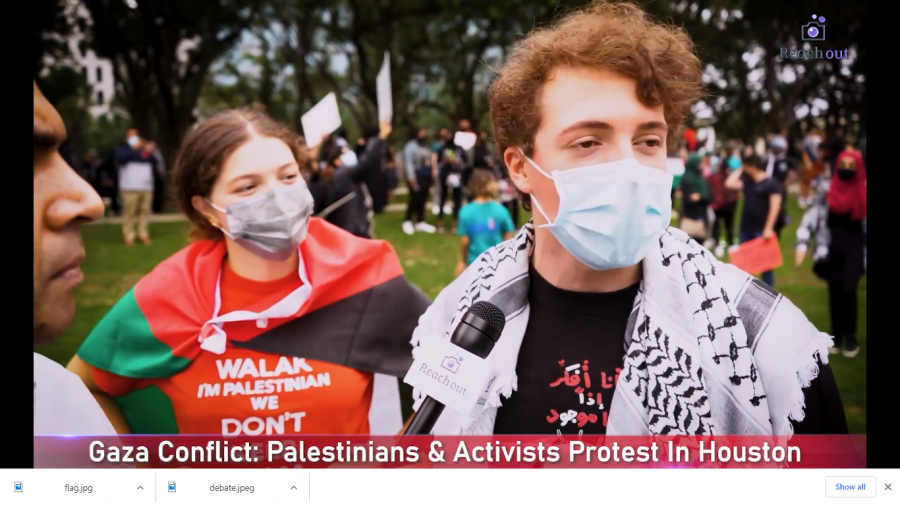
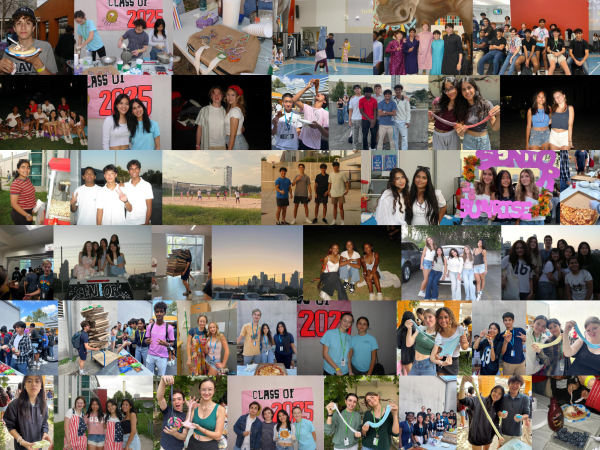
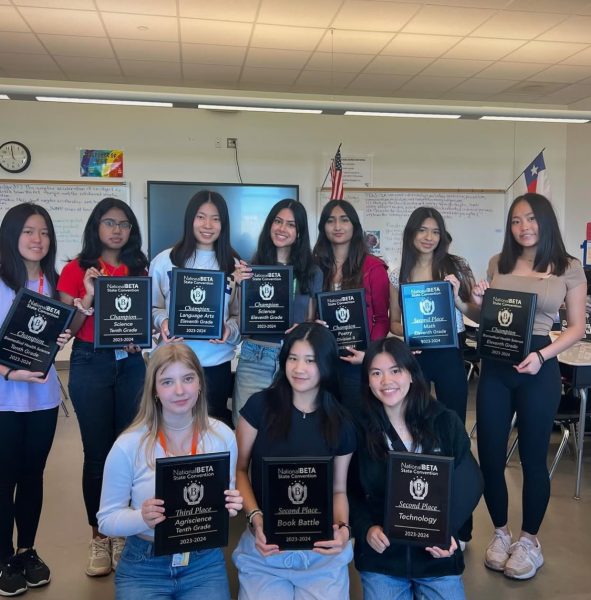
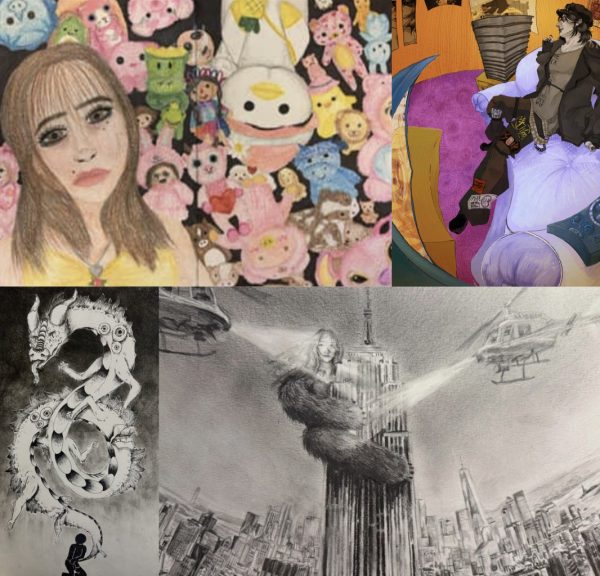
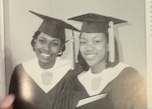
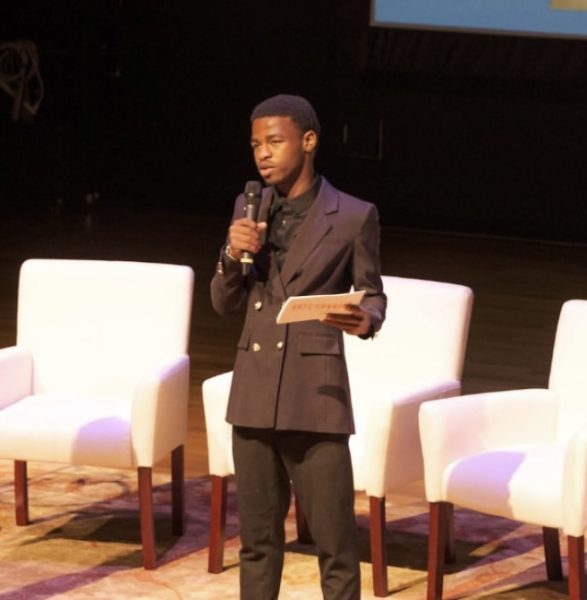
Nadia Talanker • Jun 2, 2021 at 9:18 am
This is incredibly well written, and even though I walked into this article with little to no information on the topic, I left with a plethora of understanding. Amazing article (:
Andres Pargas • Jun 1, 2021 at 5:17 pm
I love the use of tthe qquotes!
Maya Collins • Jun 1, 2021 at 1:22 pm
I like that your article brought attention to how we cannot take a politician’s word as the only explanation. Especially in the last couple of years, it is becoming increasingly more important to spread awareness and do your own research, instead of just ignoring the problem or taking someone else’s word for it.
Emma Pierce • Jun 1, 2021 at 10:53 am
Impressive writing skills/ story telling , and I think you hit the nail on the head speaking on miseducation
Nicole Rodil Suarez • Jun 1, 2021 at 10:31 am
really amazing in-depth interviews with a lot of detail
Jonathon Morales • Jun 1, 2021 at 10:31 am
I saw so many posts about this, very sad to hear about what happened. Great feature story though, good job.
Julian Namerow • Jun 1, 2021 at 10:30 am
Gosh some of these quotes are crazy descriptive
Abigail Nunez • Jun 1, 2021 at 10:30 am
It’s sad to think that people have even become used to the violent conditions they live in . And how such a small region can cause so much danger.
Talia Moghnieh • Jun 1, 2021 at 10:27 am
this is very well written i like how you brought the story to life.
Vivian Huynh • Jun 1, 2021 at 10:23 am
This is horrible that this is happening. Very informative article, Ash!